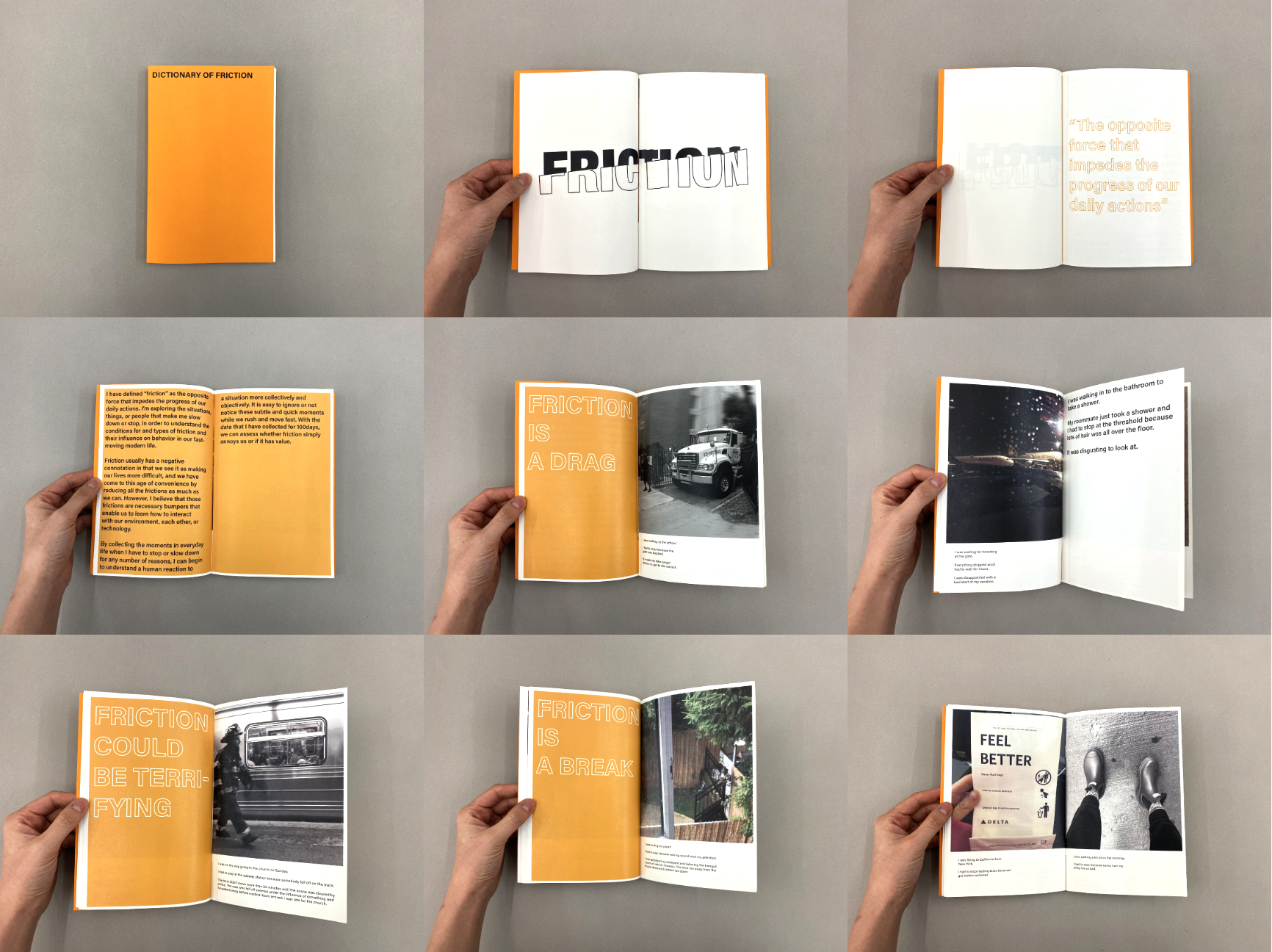Dictionary of Friction
This book is a collection of definitions and characteristics of friction by documenting moments for 100 days that I had to stop. When I say “stop,” I mean the interruption of momentum. This project gives me an idea of how friction appears and communicate in physical worlds and how I deal with it. I have defined “friction” as the opposite force that impedes the progress of our daily actions. I'm exploring the situations, things, or people that make me slow down or stop, in order to understand the conditions for and types of friction and their influence on behavior in our fast-moving modern life.
Friction usually has a negative connotation in that we see it as making our lives more difficult, and we have come to this age of convenience by reducing all the frictions as much as we can. However, I believe that those frictions are necessary bumpers that enable us to learn how to interact with our environment, each other, or technology. By collecting the moments in everyday life when I have to stop or slow down for any number of reasons, I can begin to understand a human reaction to a situation more collectively and objectively. It is easy to ignore or not notice these subtle and quick moments while we rush and move fast. With the data that I have collected for 100days, we can assess whether friction simply annoys us or if it has value.
Back to project
This book is a collection of definitions and characteristics of friction by documenting moments for 100 days that I had to stop. When I say “stop,” I mean the interruption of momentum. This project gives me an idea of how friction appears and communicate in physical worlds and how I deal with it. I have defined “friction” as the opposite force that impedes the progress of our daily actions. I'm exploring the situations, things, or people that make me slow down or stop, in order to understand the conditions for and types of friction and their influence on behavior in our fast-moving modern life.
Friction usually has a negative connotation in that we see it as making our lives more difficult, and we have come to this age of convenience by reducing all the frictions as much as we can. However, I believe that those frictions are necessary bumpers that enable us to learn how to interact with our environment, each other, or technology. By collecting the moments in everyday life when I have to stop or slow down for any number of reasons, I can begin to understand a human reaction to a situation more collectively and objectively. It is easy to ignore or not notice these subtle and quick moments while we rush and move fast. With the data that I have collected for 100days, we can assess whether friction simply annoys us or if it has value.
Back to project

